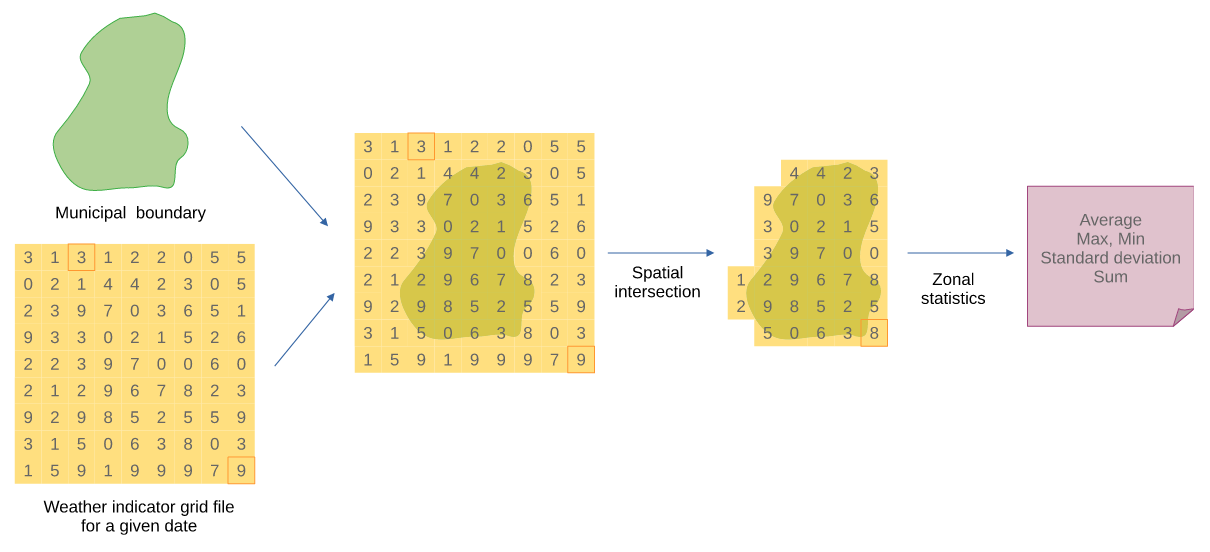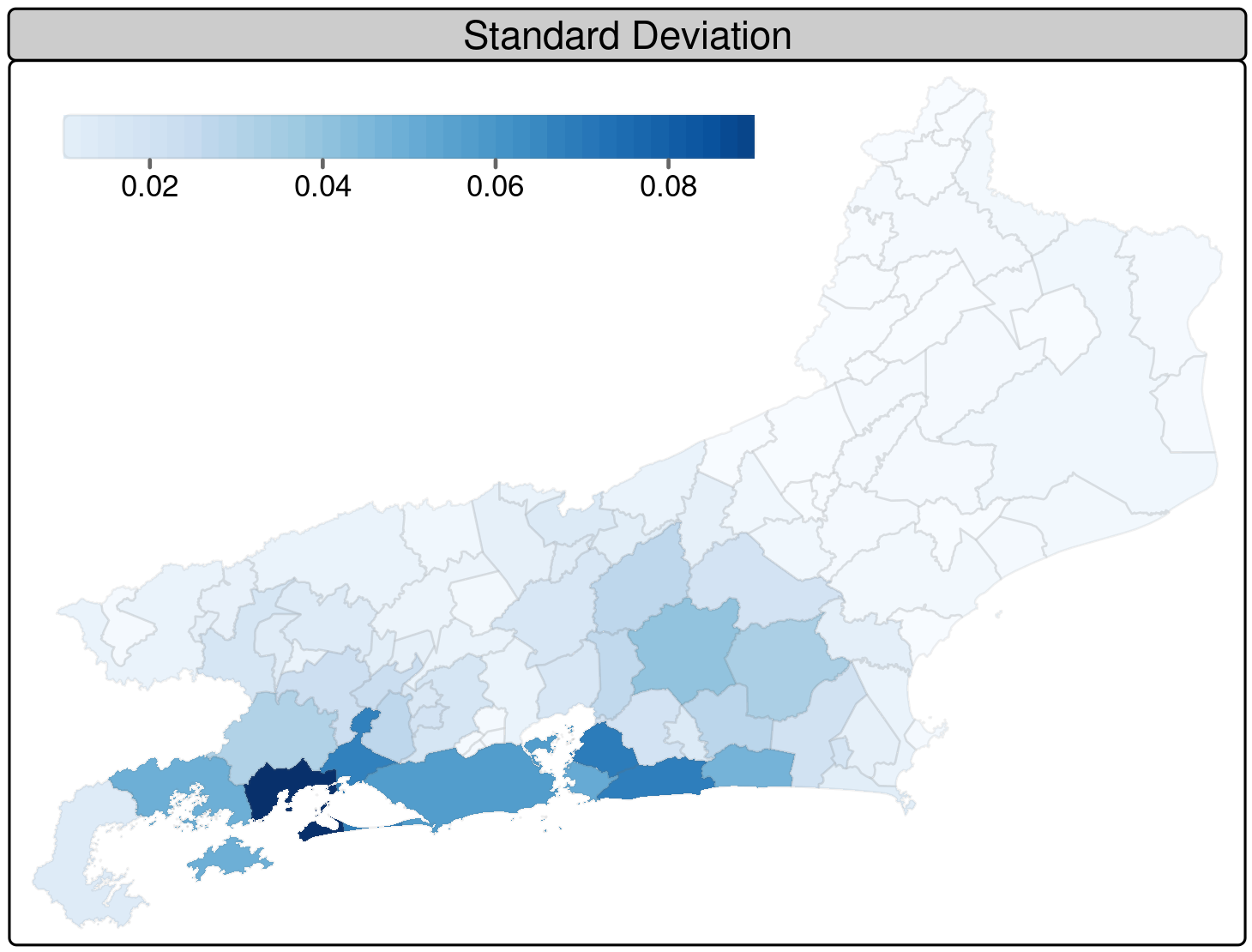Main fields of work and projects
- Data handling tools: author of ten R packages to handle health and climate datasets and indicators.
{microdatasus}, {brpop}, {tidyrates}, {zendown}, {zenstats}, {nseq}, {rspell}, {brclimr}, {zonalclim}, {opendenguedata}
- Visualization: malaria and COVID-19 interactive visualization dashboards (IRD-FR and Fiocruz-BR)
- Analysis and modeling of climate-sensitive diseases (Fiocruz-BR, LNCC-BR, BSC, Inria-FR, IRD-FR)

